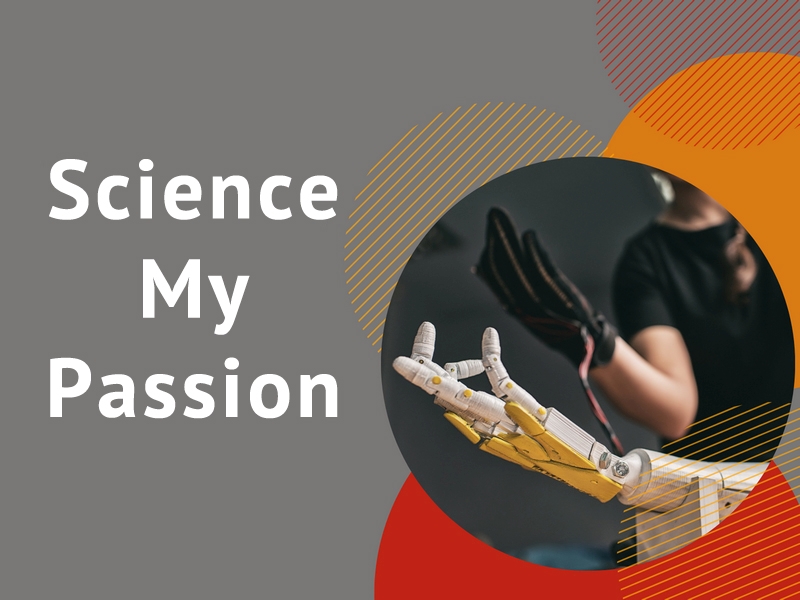What does the organic chemistry mean?
Organic chemistry – a branch of chemistry concerned with the study of the structure, properties and reactions of chemical compounds containing carbon, as well as the development of various methods for the synthesis of these combinations. In addition, organic compounds may contain atoms of other elements such as hydrogen, oxygen, nitrogen, phosphorus, silicon and sulphur.
SCIENCE | MY PASSION
According to the definition taken from the Polish Language Dictionary, science is complete human knowledge arranged into a system of problems, but also a set of ideas that constitute a systematic whole and comprise a specific research field.
Science is also activity: learning and teaching.
Please read the “Science | My Passion” series, where our researchers present their work and show that science and research process can really draw us in.
JACEK NYCZ PhD, DSc Eng. Assoc. Prof.
Institute of Chemistry
Organic chemistry is my great passion
My scientific interests are mainly related to the synthetic and mechanistic aspects of organic chemistry. I conduct research, explain reaction mechanisms, and develop new chemical transformations. Understanding the mechanism of a chemical reaction is an effective way to study and plan more productive experiments. It’s also a way of developing new compounds or precursors for medicinal purposes or other physical and technical applications. Such a strategy enables minimising side reactions and increasing the effectiveness of the target products.
“…I deal with organic chemistry not because it’s easy, but because it’s difficult…”
To paraphrase the words of the American president John F. Kennedy, I deal with organic chemistry not because it’s easy, but because it’s difficult, and thus it forces me to be more organised and use all my resources.
Person who infected me with this passion is Prof. Janusz Rachoń from the Gdańsk University of Technology. Under his supervision I completed my Master’s degree and my doctorate. I must say that in my life I met wonderful teachers to whom I owe everything.
I deal with organic chemistry not only in the laboratory, at the university or at home, but also during my free time photographing nature, because nature is chemistry as such – and it’s often very interesting organic chemistry. During my long walks, photographing various objects – my trophies – I asks myself numerous questions about the smell of given objects, their colours or uses. They inspire me to develop monographic lectures or shorter forms dedicated to students or school youth.
Organic chemistry & mushrooms
When photographing mushrooms, I proposed the subject ‘Natural Hallucinogens’ which became very popular. Thanks to mushrooms we were able to isolate such an important antibiotic as penicillin or the pigment called pyocyanin. It’s worth noting that macro muhrooms, such as boletus edulis, are tasty additions to dishes. Psilocybe mushrooms have hallucinogenic properties and have recently gained medical importance. Interestingly, the inedible bitter gentian contains anti-cancer compounds. Other mushrooms were a good source of ink, and most of their chemical composition is unknown
Organic chemistry & flovers
Roses and other fragrant flowers and plants inspired me to develop the course “Perfume and Aromatherapy”. During the lectures, I prove why roses given to ladies should smell nice, as well as what cats have in common with wine (Cabernet Sauvignon).
Organic chemistry & amphibians
I hope to finish writing my book, “The Secret Chemistry of Amphibians” soon. I’ll present a fragment of the described amphibian chemistry on 27 September at the lecture for high school students “Chemistry of those who jump and crawl”. It is worth mentioning that in 1971 in the European fire-bellied toad and the mountain toad (Bombina variegata) (Photo 1) bombesin was isolated. Among other things, bombesin has a stimulating effect on the secretion of pituitary hormones. In addition to cholecystokinin, it is the main hormone that inhibits food intake thanks to negative feedback. In addition, bombesin is a marker of certain types of cancer, such as pancreatic cancer or neuroblastoma. It also has antibacterial properties. Another even more interesting amphibian is the spotted salamander (Salamandra salamandra) (Photo 2). In the parotid glands of the spotted salamander, salamandrin is produced, with very interesting properties. Salamanders are known for their body regenerative abilities. Pioneering work was done by Lazzaro Spallanzani in 1760. Let’s think how wonderful it would be if we could learn the mechanism of regeneration of limbs, nerves or other tissues and implement these possibilities in a human being? During the lecture, I’ll also try to answer a very important, eternal question: can you turn a frog into a prince by kissing it?
I hope the reactions carried out by me and my students are interesting, as evidenced by the fox watching us (Photo 3).
Inspirations beyond the area
A person close to me (scientifically and not only) is Aleksandr Porfirjewicz Borodin (1833 – 1887). He was an outstanding Russian organic chemist and composer. He belonged to a group of five Russian composers that made music history under the name ‘The Five’. During my student days I was the head of the student club, and to this day, in the laboratory and in the science room, my students are accompanied by good music of various types.
Let’s listen to the Polovtsian Dances suite, which is a fragment of the opera Prince Igor (A. P. Borodin) performed by Natalia Chernyaeva: https://www.youtube.com, song lyrics available at: https://lyricstranslate.com










